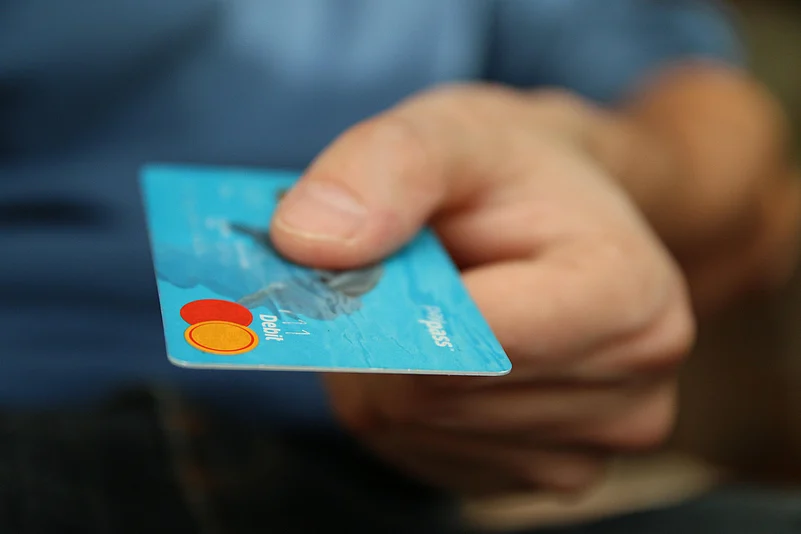Students may get confused about deciding between a credit card and a debit card. Both offer something different, but it ultimately boils down to one's spending nature, financial ambitions, and how comfortable one feels with borrowing.
A debit card provides convenience and instant control over expenditures. Tied directly to a savings account, it guarantees that one can spend only available balances. For students learning about budgeting, this is helpful because it avoids overspending. Because debit card purchases are taken directly from current account balances, there is no possibility of building debt. Debit cards are also easier to get in most cases because they need neither a credit history nor verification of income.
But with a debit card only, there are some disadvantages. Most debit cards do nothing to establish a credit rating, which can be worthwhile for students if they ever apply for loans or higher-term credit cards in the future. Refund procedures for unauthorised use are slower, and protection is typically less comprehensive than with credit cards.
Credit cards are a very powerful tool for establishing healthy finances, only if used wisely. Having good credit can be vital for students who will be making costly purchases in the future. Paying statements on time and minimal utilisation of the offered credit can enhance credit history and show fiscal responsibility.
Credit cards are also accompanied by enhanced consumer protection. Banks clear fraud or billing errors more quickly and refund erroneous charges. Credit cards also come with reward points, cashback, or discounts, which may prove handy for students who have to survive on a lean purse.
However the risk in credit cards is greater. Without the self-control of how much to spend, students get into debt. Exorbitant fees are levied in the event of late payments and adversely impact their credit score which may impact future money issues. Some banks might even levy a flat fee, ranging from Rs 100 to Rs 1,000, on your late payments. Moreover, fees on credit cards are high in the event that they get out of hand.
Amol Joshi, founder of PlanRupee Investment Services, says, "Budgeting is the key. As a student one is still dependent on parents for big-ticket expenses. What a student should manage on their own is to budget for planned & recurring expenses like travel, stationery, food expenses and so on. Credit cards are good to have for real emergencies but rest all expenses should be budgeted for & stick to the budget as much as possible. This discipline goes a long way during the future earnings phase".
A decision to use a credit or debit card should be made with consideration to one's spending habits and economic education. In the case of students who do not have significant experience with finances, spending from a debit card initially can prove to be optimal. It will promote spending money that one already has and cut down on the risk of piling up debts. A debit card can even familiarise students with expense recording and learning how to budget.
For individuals who are sure they can use credit responsibly, a credit card can reward them in the long run. Just be aware that credit is borrowed money and don't spend like there's no tomorrow. Having a small credit limit and making bill payments automatic will minimise the risk of overspending.
Alternatively, another group of students might want to maintain both cards in balance with their own spending needs. Relying on a debit card for everyday spending and on a credit card for particular expenditures such as web bookings or exigent spending can marry both advantages. It is just as good for securing credit build-up in the future while having the ability to enjoy better overall spending.
Whichever option, students need to know card terms, charges, and payment conditions. In the case of credit cards, they need to know billing cycles, minimum payments, and what happens when balances are rolled over. For debit cards, having adequate account balances and making secure transactions should be of utmost concern.
Joshi also says, "Categorise your expenses into broad heads like; boarding, lodging, recurring fees, local travel, and few other miscellaneous expenses. Allocate the money to these heads and spend as needed over a month or a school term. Do not exceed limits unless absolutely necessary. Also, do not cross-subsidise the expenses of one head from another. Having a debit card means you can only spend what you have and this is a foundation of personal finance in the years ahead".
The decision between a debit card and a credit card is not merely about convenience; it's about being prudent with finances. Although a debit card is accessible and manageable, a credit card is responsible for the potential for financial development. The appropriate choice relies on a student's dependability in money management and ultimately their financial objective. For students who are continuously learning the principle of living below their means, a debit card is an understandable beginning. For students willing to utilise credit responsibly, a credit card can provide greater financial advantages.











